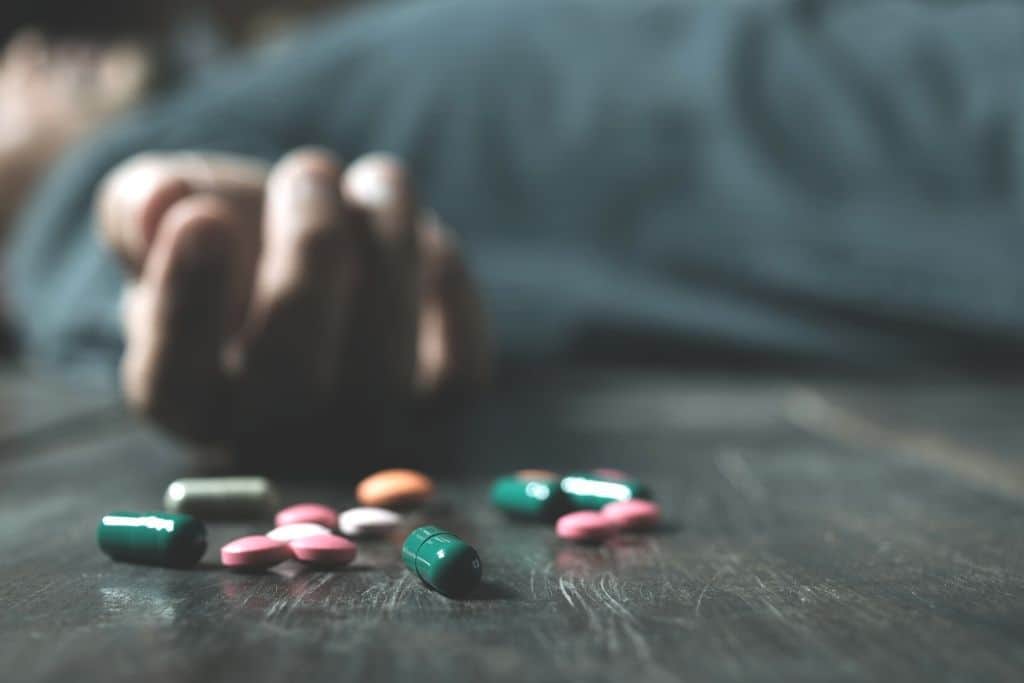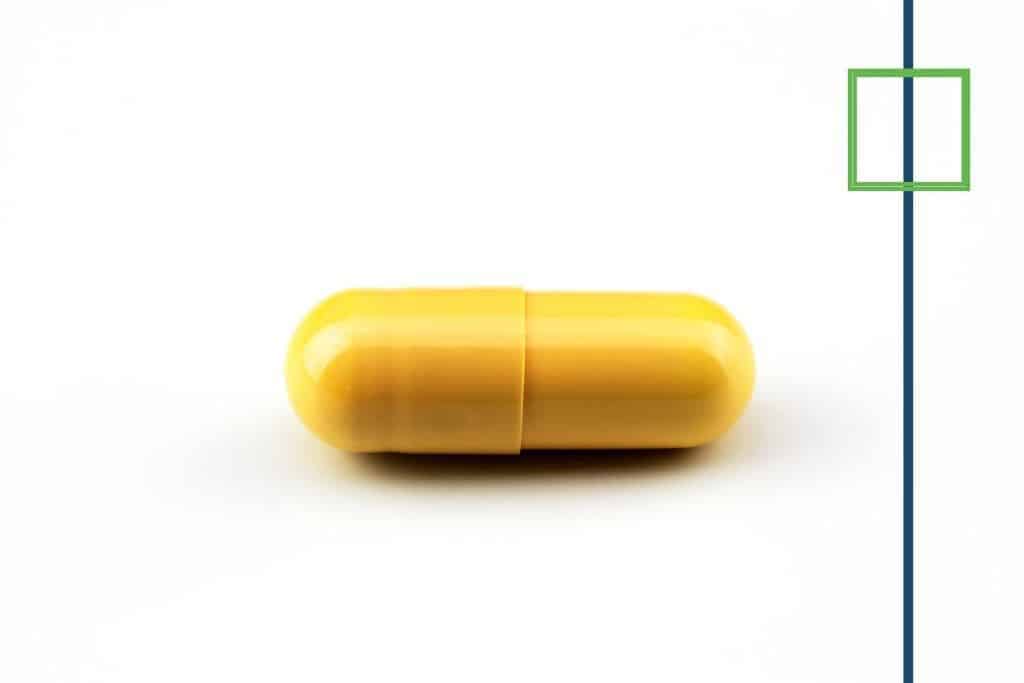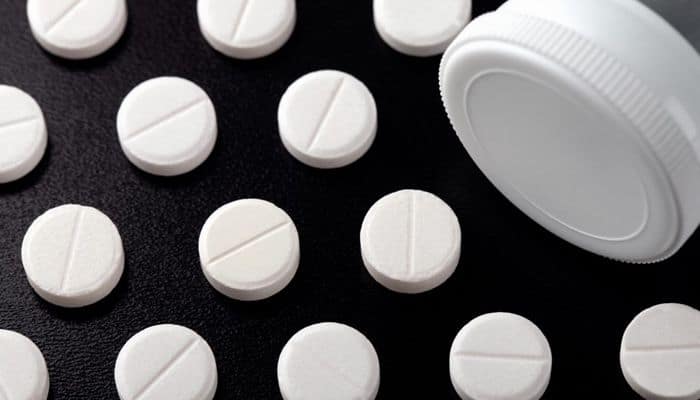What is Valium?
Valium is most often prescribed to relieve anxiety, muscle spasms, and seizures. It is also used to ease uncomfortable symptoms of alcohol withdrawal. Valium works by diminishing hyperactive brain function to relieve severe stress and anxiety. It is ingested orally in pill form and usually taken 1-4 times per day when prescribed by a doctor. Valium is a long-acting Benzodiazepine.
This means it stays in the body much longer than shorter-acting Benzos like Halcion. Because of Valium’s long-lasting nature, people can take fewer doses per day than they would with shorter-acting Benzos. Valium is meant to be taken regularly to be effective. But when someone starts taking Valium more than prescribed, or without a prescription, they increase their risk of becoming addicted.

How Much Valium Does It Take to Overdose?
Just how much Valium would it take to overdose? As alluded to, any milligram amount above the prescribed amount is, technically speaking, an overdose. However, even at 1,000 times the recommended dose — upwards of 2,000 mg — Valium is typically not lethal for adults.
Now, this isn’t to say that such insatiable use isn’t dangerous, far from it. Any individual that attempted to consume this amount of Valium would certainly go comatose in the process, especially if the attempt involved crushing and snorting the prescription pill, which brings additional respiratory problems into the picture. Combining the drug with additional substances like alcohol or opioids can increase the danger.

Get Your Life Back
Find Hope & Recovery. Get Safe Comfortable Detox, Addiction Rehab & Dual Diagnosis High-Quality Care.
Hotline(844) 597-1011What Happens if you Overdose on Valium? Valium Overdose
The number of U.S. drug overdose deaths involving benzodiazepines has grown from 1,135 in 1999 to 11,537 in 2017. Such risky use behaviors make otherwise safe and effective medications a potential nightmare for users and their families alike.
By itself, Valium has a low threshold for overdoses. This is lowered even further for fatal overdoses. It would take a large amount of the drug to overdose on it alone, let alone succumb to the effects and pass away. While an overdose can still occur, it is unlikely.
Understanding what constitutes a standard Valium dose regimen can better illustrate this point. Doctors generally recommend the drug should be used at dosages of 2-10 mg. This amount can be taken up to four times in a 24-hour time frame. The maximum daily total use in milligrams should not exceed 40 mg.

Anything above the level prescribed by your doctor could lead to an overdose. The further a patient or recreational user diverges from this number, the more serious the consequences get. While a fatal overdose requires much more than 40 mg in a single sitting, permanent side effects can emerge if such high doses become habitual.
Signs and Symptoms of Valium Overdose
What Happens if you Overdose on Valium? Being aware of the signs and symptoms of Valium overdose can help you get assistance for yourself or a loved one who might be suffering from a Valium overdose. One of the more common signs of a Valium overdose is a night of deep, difficult-to-rouse-from sleep or coma-like state with maintained breathing (though it may progress to respiratory distress in short order). Other possible signs and symptoms may include:
- Uncoordinated movements
- Excitability
- Weakness
- Breathing difficulties or complete cessation of breath
- Unresponsiveness; not seeming alert
- Blue lips or nails
- Blurry or double vision
- Confused mental state
- Feelings of depression
- Dizziness, unable to stay upright
A person experiencing an overdose may exhibit just a few of these signs. If you notice any of these symptoms in yourself or a loved one, seek medical attention immediately.
The National Institute on Drug Abuse reports a 4.3-fold increase in the total number of deaths due to benzodiazepine overdose between 2002 and 2015. And according to a study published in 2016 in the American Journal of Public Health, overdose rates increased from 0.58 to 3.07 per 100,000 adults between 1996 and 2013. With these alarming rates in mind, it’s crucial to do everything you can to prevent a Valium overdose in yourself or a loved one.
Get Help. Get Better. Get Your Life Back.
Searching for Accredited Drug and Alcohol Rehab Centers Near You?
Even if you have failed previously and relapsed, or are in the middle of a difficult crisis, we stand ready to support you. Our trusted behavioral health specialists will not give up on you. When you feel ready or just want someone to speak to about therapy alternatives to change your life call us. Even if we cannot assist you, we will lead you to wherever you can get support. There is no obligation. Call our hotline today.
(844) 597-1011Dangers of Valium Overdose
What Happens if you Overdose on Valium? While it’s very rare for a person to experience a fatal overdose from Valium alone, it is more likely when combined with alcohol or opioids. Valium is used in alcohol detox. The medication aids in the process of alcohol withdrawal by relieving agitation, tremors, hallucinations, and more.
However, drinking alcohol while using Valium enhances the effects of both substances, increasing the toxicity levels. This can lead to severe central nervous system depression.
Mixing alcohol and Valium can cause:
- Slowed heartbeat
- Confusion
- Respiratory depression
- Loss of consciousness
Taking diazepam in combination with opioids also increases the risk of respiratory depression.
Effects of Valium Overdose
A mild overdose may manifest itself through:
- Lethargy
- Drowsiness
- Confusion
- Dizziness
- Lack of alertness
- Rash
- Rapid eye movements
More serious overdoses may involve:
- Labored breathing
- Bluish-colored lips and fingernails
- Ataxia (recognizable through slurred speech, stumbling, and impaired motor skills)
- Hypotension
- Hypotonia (decreased muscle tone)
- Coma
- Death
Fatal Overdose Valium
What Happens if you Overdose on Valium? Fatal Valium overdose is extremely rare. In a survey of 914 benzodiazepine-related deaths in North America, only two cases involved diazepam alone. In instances in which people have intentionally ingested up to 2,000 mg of diazepam, the patients recovered within 48 hours without any serious complications. Most cases involving a fatal Valium overdose also involve other substances such as opioids, alcohol, or other central nervous system depressants.
First-class Facilities & Amenities
World-class High-Quality Addiction & Mental Health Rehabilitation Treatment
Rehab Centers TourRenowned Addiction Centers. Serene Private Facilities. Inpatient rehab programs vary.
Addiction Helpline(844) 597-1011Proven recovery success experience, backed by a Team w/ History of:
15+
Years of Unified Experience
100s
5-Star Reviews Across Our Centers
10K
Recovery Success Stories Across Our Network
- Low Patient to Therapist Ratio
- Onsite Medical Detox Center
- Comprehensive Dual-Diagnosis Treatment
- Complimentary Family & Alumni Programs
- Coaching, Recovery & Personal Development Events
Valium Addiction
Valium is an addictive Benzodiazepine with longer-lasting effects than other drugs in its class. Valium addiction can progress quickly if the drug is used in a way not directed by a doctor. Over time, it is harder for a Valium abuser’s brain to function normally without the drug. Yet some people addicted to Valium may not even realize they have a problem.
Taking Valium for longer than 4-6 weeks, even with a prescription from a doctor, increases the likelihood of becoming addicted. One of the telltale symptoms of a Diazepam (Valium) addiction is needing larger doses to feel the drug’s effects. Other signs of Diazepam (Valium) addiction include:
- Strong cravings for the drug
- Isolation from family and friends
- Continued use despite problems caused by the drug
- Loss of interest in once enjoyable activities
- Ignoring obligations

Once a user has a tolerance to Valium’s effects, they could also have withdrawal symptoms if they stop taking it. Valium withdrawal can be dangerous and uncomfortable, which makes it hard for addicted people to quit on their own. The symptoms of withdrawal are intense, and many people addicted to Valium need the drug to feel normal.
Signs Of Valium Addiction
Valium addiction often starts in a seemingly harmless way: people will take it once or twice to catch up on sleep or cope with a stressful day. Many Valium users hide their drug use, which can make it hard for loved ones to recognize that there is a problem. As someone becomes more dependent on Valium, they often increase their doses. This makes it harder for them to hide their use, and they are more likely to show visible signs of Valium abuse.
The visible and behavioral effects of Valium intoxication are similar to that of alcohol intoxication. Some signs that may indicate Diazepam (Valium) addiction include:
- Changes in appetite
- Uncharacteristic sadness or irritability
- Shaking (from withdrawal)
- Slurred speech
- Impaired coordination
- Dilated pupils
World-class, Accredited, 5-Star Reviewed, Effective Addiction & Mental Health Programs. Complete Behavioral Health Inpatient Rehab, Detox plus Co-occuring Disorders Therapy.
CALL(844) 597-1011End the Addiction Pain. End the Emotional Rollercoaster. Get Your Life Back. Start Drug, Alcohol & Dual Diagnosis Mental Health Treatment Now. Get Free, No-obligation Guidance by Substance Abuse Specialists Who Understand Addiction & Mental Health Recovery & Know How to Help.
Treatment for Valium Addiction
People addicted to Valium should never quit “cold turkey.” Withdrawal from Valium can lead to seizures and coma, which can be fatal. Treatment for a Valium addiction helps users step down their doses over several weeks to minimize uncomfortable withdrawal symptoms and prevent complications. Some common symptoms of withdrawal from Valium include anxiety, insomnia, and shakiness.
The duration of withdrawal is different for everyone. Those who took larger doses of Valium over an extended period take the longest to reach a sense of “normal” without the drug. Therapy and support groups are also invaluable cornerstones of Diazepam (Valium) addiction treatment. Treatments like Cognitive Behavioral Therapy (CBT) for Valium addiction help users understand the underlying reasons for their Valium addiction. Support groups and 12-step meetings can provide a constructive environment for people with the same goal.
Reclaim Your Life From Valium Addiction
People suffering from Valium addiction often put their addiction ahead of professional and personal obligations. They are also likely to become unmotivated and lose interest in hobbies they once found pleasurable. We Level Up rehab treatment & detox center can provide you, or someone you love, the tools to recover from this condition with a professional and safe detox process. Feel free to call us to speak with one of our counselors. We can inform you about this condition by giving you relevant information. Our specialists know what you are going through. Please know that each call is private and confidential.
Experience Transformative Recovery at We Level Up Treatment Centers.
See our authentic success stories. Get inspired. Get the help you deserve.
Start a New Life
Begin with a free call to an addiction & behavioral health treatment advisor. Learn more about our dual-diagnosis programs. The We Level Up Treatment Center Network delivers recovery programs that vary by each treatment facility. Call to learn more.
- Personalized Care
- Caring Accountable Staff
- World-class Amenities
- Licensed & Accredited
- Renowned w/ 100s 5-Star Reviews
We’ll Call You


